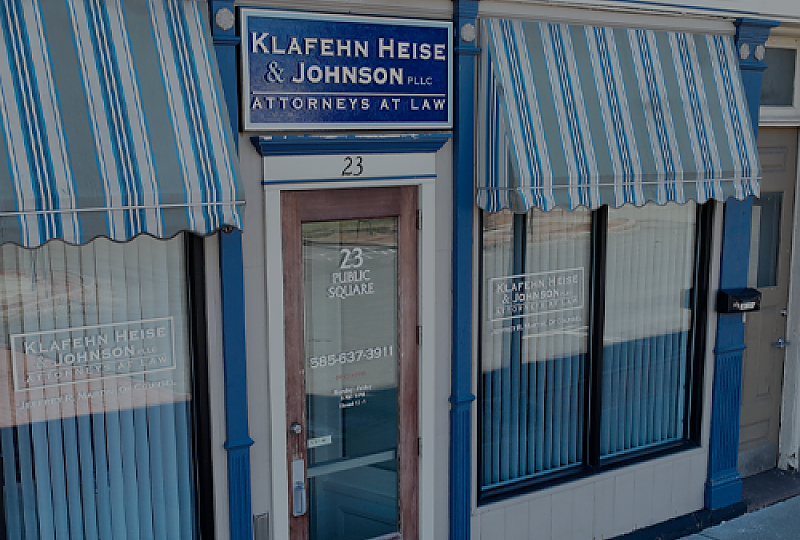How Can You Legally Protect Your Small Business in New York?

In the vibrant and competitive landscape of New York, running a small business is as challenging as it is rewarding. Protecting your business legally is not just about safeguarding against potential threats; it's about ensuring the longevity and success of your enterprise. At Klafehn, Heise & Johnson P.L.L.C., we understand the nuances of New York business law and provide the guidance necessary to keep your business secure. Let's explore how you can legally protect your small business in New York.
1. Choosing the Right Business Structure
The foundation of legal protection for your business begins with selecting the appropriate business structure. Whether it’s an LLC, corporation, partnership, or sole proprietorship, each has its implications for liability, taxes, and operational flexibility. The right choice can provide significant legal shields for your personal assets and facilitate better business operations.
2. Drafting and Reviewing Contracts
Contracts are the lifeblood of any business. Well-drafted agreements with suppliers, customers, and employees are essential. These contracts should clearly outline the rights, responsibilities, and expectations of all parties involved. Having your contracts reviewed by a legal professional can prevent future disputes and ensure they are enforceable under New York law.
3. Complying with Employment Laws
New York's employment laws are complex and can be a minefield for small businesses. From hiring practices to employee terminations, understanding and complying with these laws is crucial. This includes adherence to wage and hour laws, anti-discrimination statutes, and workplace safety regulations. Non-compliance can lead to costly legal battles and damage to your business’s reputation.
4. Understanding Licensing and Permit Requirements
Depending on the nature of your business, various licenses and permits may be required at both the state and local levels. Failure to obtain the necessary licenses can result in fines and even business closure. It’s important to understand the requirements specific to your business and ensure compliance.
5. Creating a Succession Plan
A good business protection strategy includes planning for the future. This involves creating a succession plan that outlines how your business will operate and transition in the event of your retirement, disability, or death. A well-thought-out plan ensures the continuity and sustainability of your business.
6. Insuring Your Business
Appropriate business insurance provides a safety net against unforeseen events. Different types of insurance, such as liability, property, and professional insurance, can protect against various risks. Ensuring you have the right coverage is vital for the financial security of your business.
7. Regular Legal Check-Ups
Just as regular health check-ups are essential for your well-being, periodic legal reviews are vital for your business. Keeping your legal affairs in order, from contracts to compliance, helps prevent problems before they arise.
Protecting your small business in New York requires a comprehensive approach, addressing legal, operational, and financial aspects. At Klafehn, Heise & Johnson P.L.L.C., we are committed to helping small businesses in New York thrive by providing the legal experience necessary to navigate the complex business landscape. Remember, the best time to protect your business is now, before potential legal issues arise.
Legal Disclaimer: This article provides a general overview of strategies for legally protecting a small business in New York and should not be considered legal advice. Business laws vary, and individual circumstances can significantly affect legal needs. For specific legal advice and guidance tailored to your transactions and circumstances, consult with the attorneys at Klafehn, Heise & Johnson PLLC. Portions of this account are considered ATTORNEY ADVERTISING under the New York State Unified Court System Rules of Professional Conduct (22 NYCRR Part 1200). Prior results do not guarantee a similar outcome.
‹ Back













